 Sanctuary Sandwich Home. Multigenerational Housing Replaces the Nuclear Family. Interview with Lawrence Yun, the chief economist of the National Association of Realtors. During the pandemic, a great deal of folks welcomed their adult children back home. Some were college students taking classes online, instead of on campus. Others are post-grads who lost a job in hospitality or travel. Many were underemployed to begin with, trying to make a living off of gigs, like driving for Lyft. However, even before the pandemic, the trend toward intergenerational housing was already underway. Intergenerational housing is higher today than it was during the Great Depression (source: Pew Research)! 18% of Gen Z home buyers are purchasing larger homes to house their parents and future children (source: The National Association of Realtors). This may be partially motivated by the need to borrow money for the down payment, in addition to budgetary and pandemic concerns. How will homesharing affect home buying and the real estate market going forward?
On March 25, 2021, I spoke with Lawrence Yun, the chief economist of the National Association of Realtors, about these trends and more, including:
Natalie Pace: 18% of Gen Z are purchasing multigenerational homes, with a 12% increase overall. How is this affecting the real estate market? Lawrence Yun: The silver lining of the pandemic is that people want to have a larger size home, perhaps to turn one additional bedroom into an office space. As they were considering this, they said, “Well, why don’t we get an even larger home that could accommodate our elderly parents?” There is also the financing aspect, where the parents could help out. It’s a very interesting development. We don’t know yet whether this is a permanent trend, or just a temporary, cyclical situation. I have heard from people that they want their parents to be living in a single-family home, rather than a nursing home, in case of a future virus breakout. NP: Home prices are high. When more people are contributing to the budget, it’s easier to afford the mortgage. How does this affect other housing types? Does this shift in demand toward larger homes negatively impact the sales of 2-bedroom homes? LY: Right now, the demand is strong across all price points. We have seen a doubling in home sales for million-dollar plus homes. At the under $250,000 price point, sales are negative from last year. Is there a change in preference? [No.] There’s simply not enough inventory at the low end. NP: In the wake of the pandemic, we saw weakness in very expensive markets, like San Francisco and Manhattan. Is there still a trend out of the city and toward the suburbs? LY: The overall long-term trend is toward smaller towns in less expensive parts of the country. The work-from-home flexibility for office workers is a new phenomenon. People will be wondering why they are paying such high housing costs in San Francisco, when they could be elsewhere, even Sacramento, which is not too far from San Francisco. We have seen Sacramento take off in terms of sales and prices. Natalie Pace: Last year was one of the most challenging economies in history. Yet real estate prices went crazy. Lawrence Yun: Home sales increased 7% nationwide on a year-over-year basis [in 2020]. The prices are still running very strong. NP: Is it too hot? Will 2021 cool down? Or will the fundamentals – Millennial interest and lack of availability – push prices higher? LY: We have a record low of listings. The latest data is showing a 15% price appreciation from one year ago. The cause is very simple. We don’t have enough supply. If we can bring supply to the market, it will tame some of the price growth that we have been experiencing. NP: Do escalating prices and lack of inventory have anything to do with the moratoria on rental evictions and foreclosure forbearance? LY: Yes. There are roughly 2.6 million homeowners in the mortgage forbearance program. We are missing roughly 260,000 homes that could be on the market. As the mortgage forbearance period winds down, we could see more inventory. Also, many of the elderly population who wanted to move to a retirement home, or to Florida, do not want strangers visiting their home. Now, with the vaccine making progress, some of the elderly households will also list their homes. NP: Is September 30, 2021 the end of the forbearance period? LY: It’s possible that it could be extended if the economy doesn’t make strong progress. With the vaccination and potentially herd immunity in the 2nd half of the year, maybe people can move out of mortgage forbearance, and begin to do their normal residential movement from changes in life circumstances. NP: Are you seeing any red flags? We saw a boatload of red flags prior to the Great Recession. Are you seeing poor credit quality, Adjustable-Rate Mortgages, or overleveraged homeowners? Are homeowners speculating? Is unaffordability an issue? LY: The good news is that we don’t have the funny mortgages of 10 years ago – the subprime lending that overstretched people’s budget, or the adjustable-rate mortgages that reset to higher rates, which people couldn’t afford. Over 90% of people are taking out a 30-year, fixed-rate mortgage. The average credit scores are one of the best. I don’t see any trouble on the mortgage front, other than job loss. Persistent job losses could lead to some foreclosures. But the demand is so strong that any distressed property that comes onto the market will be easily picked up by ready buyers. NP: Are buyers getting out over their skis and spending too much on housing – overextending their budget? LY: Banks are not making loans that overstretch the budget. However, many of the younger generation are getting help from their family members – a down payment from Mom, Dad or the rich Uncle. People who are only reliant on their own resources are having a tough time getting into the market. NP: Could increasing mortgage rates impede future sales? What could push mortgage rates up, when the Fed Fund rate is predicted to stay very low for the next few years? LY: Mortgage rates are influenced by many factors, including inflationary expectations, how the 10-year bond yields are moving and the Treasury government bond borrowing rate. Mortgage rates have already jumped up in recent months. The absolute low was back in December/January, when it was averaging 2.7%. Now it is above 3%. It’s inching higher because stimulus is not free money. People are getting the $1400 stimulus check. There is possibly more spending for infrastructure later in the year. The larger budget deficit and higher national debt make bond investors nervous. So, mortgage rates are rising. Fortunately, the increases have been in the decimal points. But if the bond investors lose confidence, and mortgage rates rise to 4% before the year finishes, that will choke off demand for homebuying. NP: Let’s discuss what might spook bond investors. The U.S. has a negative outlook on our AAA credit rating from Fitch Ratings. Inflation could also play a role, right? LY: Inflation will be rising. In the early months of the pandemic, inflation went down to zero. Now inflation is picking up to 1.7%, partly due to rising health care costs. We’ve seen an increase in the price of automobiles. Apartment rental rates, which had sunk very low in the early months of the pandemic, are now beginning to climb out again. The younger generation, who went straight to the parents’ basement in the early stages of the pandemic, are now seeing job creation. They are itching to get out. Rental demand is picking up, so rents are rising. Inflation should cross over the 2% line before the year-end. NP: With about 1/3 of homebuyers being first-time home buyers, let’s give them some tips for successful home ownership. LY: Be very comfortable in what you are willing to spend. Don’t overstretch. There are multiple offers and sometimes the bid offers include an escalation clause. But if it overstretches your budget, just hold off and look for a better time later, or a different neighborhood that is further out from the city, where things are more affordable. See what the company policy will be regarding Work-From-Home after the pandemic. If there is greater flexibility, or maybe you can negotiate how many days you have to come into the office, then you have better options – more affordable options – to consider. Many of the younger generation are saddled with student debt. There is a psychological barrier of not wanting to carry too large of debt simultaneously in student debt and mortgage debt. There is also a financial barrier. If you have too much student loan debt it is harder to qualify for a mortgage. So, try to pay down existing debt, including student loan debt, as quickly as possible, so that you can be better prepared once you want to enter the market. NP: Let’s go macro for just a moment. Do you think the U.S. will be downgraded by Fitch Ratings? LY: The U.S. debt level is extremely high. However, so is the debt of other nations. So, people are still willing to invest in the U.S. dollar and U.S. treasuries, even though the debt situation is one of the worst in U.S. history. It is possible that we could be downgraded, but the downgrade will be across the board with other countries, as well. All countries have been using stimulus measures and running up deficits, to fight the coronavirus and the economic downturn. If there is positive news on the vaccine, and the economy can come back close to pre-pandemic levels maybe by the end of the year, then the debt levels could start to decline at that point. NP: The most recent projections from the Federal Reserve peg 2021 U.S. GDP growth expectations at 6.5%. Do you think we can get there? LY: That would be an outstanding figure. I have GDP pegged at 4% growth. We are in a very unusual time. Think of how fast the GDP collapsed last year, and how fast we are recovering. NP: What’s your advice for Main Street real estate buyers and sellers in 2021? LY: For the buyers, understand that it is a very competitive market out there. For the sellers, they have been in the driver’s seat in terms of what offers to accept. Don’t price your home too high, thinking that the market is hot. Once your home stays on the market too long, it gets a label that it is stale or that there is something wrong. Also understand that the market that has been hot will not be hot for very long. If you want to consider selling, now may be a good time because it should be easy to find buyers. NP: Is there still an opportunity to refinance and lock in that historically low fixed mortgage rate? LY: Most people have already done that. But there are still people who could benefit from that 3% mortgage rate. So, just look at what your monthly mortgage interest rates are saying. If it is 3.5% or higher, depending upon how long you wish to live in your existing residence, refinancing could really pay off. NP: I always say, “Align your mortgage pay-off date with your retirement date.” Is that counsel you would give as well? LY: That is very good advice. Once you retire, your retirement income is to enjoy life, after multiple years of dedicating your life to work. With real estate prices hitting all-time highs, and many cities unaffordable, Americans are finding innovative solutions, including multigenerational housing and moving out of expensive cities, particularly when they can work remotely from home. If you are saddled with a lot of student loan debt, the cost savings of multigenerational housing might make it easier to pay down debt, build up your down payment and get into your own home much more quickly than if you are attempting these things from a high-cost apartment. If Lawrence Yun is right in forecasting that a hot real estate market might cool down later this year, then waiting for a better opportunity could be the best way to ensure that you don’t have buyer’s remorse down the road. If you’d like to watch the entire video interview with Lawrence Yun, go to YouTube.com/NataliePace. Join us for our April 24-26, 2021 Financial Empowerment Retreat. (Click to learn more.) In 3 days, you'll receive a complete Money Makeover and transform your life forever! Bring your friends, family and teens for an unbelievably low group rate. Call 310-430-2397 or email [email protected] to learn more now.  Natalie Pace Financial Empowerment Retreat. April 24-26, 2021. Call 310-430-2397 or email [email protected] to learn more. Receive the best price when you register with friends and family. Other Blogs of Interest 10 Budget Leaks That Cost $10,000 or More Each Year. The Stimulus Check. Party Like It's 1999. Kushner's Times Square Building Plunges 80% in Value. Will There be a Spring Rally? Cannabis and the Road to Decriminalization in the U.S. Hot ETFs Return Up to 50% Since October. Investor IQ Test 2021. Investor IQ Test Answers Shoot the Moon Stock Picks 2021 Crystal Ball. Would You Pay $50 for a Cafe Latte? Is Your Tesla Stock Overpriced? Can Medmen Avoid Bankruptcy? Bitcoin is Back, Baby! Real Estate Prices are Going Up. And Down. Movie Theaters are in Trouble Airbnb Should Have a Spectacular IPO Today. Cannabis is Decriminalized. Stocks Triple. Airbnb's IPO. Should Hosts Invest? Gifts Under $5 and Free. Thanksgiving in a Pandemic. The Sustainability Silver Lining. Secretary Mnuchin Halts Bailouts Money Stress Killed My Friend Real Estate and Housing 2021. Challenges & Opportunities Real Estate in a Pandemic. Interview with Mike Fratantoni, the Chief Economist of the Mortgage Bankers Association. Bonds are Illiquid & Negative-Yielding. Annual Rebalancing is a Buy Low, Sell High Plan on Auto-Pilot. 5 Red Flags of a Financial Implosion Will Regeneron Be Approved Before the Election? Tesla Will Have an Outstanding Earnings Report Should You Wait Until After the Election to Fix Your Wealth Plan? The October Surprise Is Your Bank a Junk Bond Do Stocks Fare Better Under Democrats or Republicans? Put Your Money Where Your Heart Is. Crystal Ball for the Remainder of 2020 (Including the Election). Microcap Gaming Company Doubles 2Q 2020 Revenue. Apple & Tesla Stock Splits. Schwab's Chief Fixed Income Strategist on What's Safe. China's Tesla (Nio). 2Q Sales Soar. Why Are You Still Renting? (Errr. There is More Than This to Consider!) MedMen's Turnaround Plan Attracts A-List Board Members. Wealth Myths That Keep You Poor. Prosperity Truths That Make You Rich. Protecting Your Wealth and Home in a Recession. Technology and Silver are Golden. The Economy Contracts 32.9% in the 2nd Quarter of 2020. Real Estate: Feeling Equity Rich? Make Sure That Feeling Isn't Fleeting. Airline Revenue Plunges 86%. 10 Questions for College Success Bank Earnings Season. Crimes. Cronyism. Speculation. Real Estate Solutions for a Post-Pandemic World. Copper and Chile Update. Gold Soars. Some Gold Funds Tank. Will the Facebook Ad Boycott De-FANG Stocks? Why Did My Cannabis Stock Go Down? Which Countries Are Hot in a Global Pandemic? Is Your Financial Advisor Good at Navigating Stormy Seas? $10 Avocados, Lies, Damn Lies, Statistics & Wall Street Secrets. It's Never a Crash. Work From Home and Intergenerational Housing. Biotech Races for a Coronavirus Cure. Are You Worried About Money? May is a Good Time for Rebalancing. Is FDIC-Insured Cash at Risk of a Bank Bail-in Plan? Why Did my Bonds Lose Money? Cannabis Update. Recession Proof Your Life. Free Videocon Monday, May 10, 2020. The Recession will be Announced on July 30, 2020. Apple Reports Terrible Earnings. We Are in a Recession. Unemployment, Rising Stocks. What's Going On? 8 Money Myths, Money Pits, Scams and Conspiracy Theories. 21st Century Solutions for Protecting Your Home, Nest Egg & Job. Wall Street Insiders are Selling Like There is No Tomorrow. Why Are My Bonds Losing Money? Tomorrow is Going to be Another Tough Day. Price Matters. Stock Prices are Still Too High. Should You Ride Things Out? 7 Recession Indicators Corona Virus Update. The Bank Bail-in Plan on Your Dime. NASDAQ is Up 6X. CoronaVirus: Which Companies and Countries Will be Most Impacted. Is Tesla Worth GM and Ford Combined. Artificial Intelligence is on Fire. Is it Time to Buy S'More? Take the Retirement Challenge. Important Disclaimers Please note: Natalie Pace does not act or operate like a broker. She reports on financial news, and is one of the most trusted sources of financial literacy, education and forensic analysis in the world. Natalie Pace educates and informs individual investors to give investors a competitive edge in their personal decision-making. Any publicly traded companies or funds mentioned by Natalie Pace are not intended to be buy or sell recommendations. ALWAYS do your research and consult an experienced, reputable financial professional before buying or selling any security, and consider your long-term goals and strategies. Investors should NOT be all in on any asset class or individual stocks. Your retirement plan should reflect a diversified strategy, which has been designed with the assistance of a financial professional who is familiar with your goals, risk tolerance, tax needs and more. The "trading" portion of your portfolio should be a very small part of your investment strategy, and the amount of money you invest into individual companies should never be greater than your experience, wisdom, knowledge and patience. Information has been obtained from sources believed to be reliable. However, NataliePace.com does not warrant its completeness or accuracy. Opinions constitute our judgment as of the date of this publication and are subject to change without notice. This material is not intended as an offer or solicitation for the purchase or sale of any financial instrument. Securities, financial instruments or strategies mentioned herein may not be suitable for all investors. 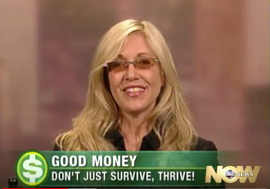 About Natalie Pace Natalie Wynne Pace is an Advocate for Sustainability, Financial Literacy & Women's Empowerment. She has been ranked as a No. 1 stock picker, above over 835 A-list pundits, by an independent tracking agency (TipsTraders). The ABCs of Money remained at or near the #1 Investing Basics e-book on Amazon for over 3 years (in its vertical), with over 120,000 downloads and a mean 5-star ranking. The 4th edition of The ABCs of Money was released on October 17, 2020. Natalie Pace's easy as a pie chart nest egg strategies earned gains in the last two recessions and have outperformed the bull markets in between. That is why her Investor Educational Retreats, books and private coaching are enthusiastically recommended by Nobel Prize winning economist Gary S. Becker, TD AMERITRADE chairman Joe Moglia, Kay Koplovitz and many Main Street investors who have transformed their lives using her Thrive Budget and investing strategies. Click to view a video testimonial from Nilo Bolden. 10 Budget Leaks That Cost $10,000 or More Every Year. What can you do when life just doesn’t add up? For many Americans, wages have stagnated for decades, while the costs of survival have gone into the Nethersphere. As a result, consumer debt is higher than ever – about a trillion higher than it was before the Great Recession, at $14.56 trillion. If you are struggling to make ends meet, and finding that you have to put emergencies (and sometimes even food) on a credit card, then you’ll have to think creatively about budget solutions. Cutting out café lattes and avocado toast isn’t going to cut it. Most of us, are not shopaholics. Below are 10 Budget Leaks that cost thousands annually. The 10th Tip is a game-changing solution that is being adopted by more and more Gen Z and Millennial adults.
And here’s the skinny on getting a leaner budget.
A debt problem is, at its heart, a budgeting problem. Although it’s not your fault that housing, health insurance, transportation and food cost more than you earn, you must be the boss of your money and the visionary of your future in order to break free from this fiscal subjugation. The sooner you take charge, the faster your life transforms. In addition to fixing the leaks in your budget, now is the time to make sure there are no leaks in your financial house. Join us for our April 24-26, 2021 Financial Empowerment Retreat. (Click to learn more.) In 3 days, you'll receive a complete Money Makeover and transform your life forever! Bring your friends, family and teens for an unbelievably low group rate. Call 310-430-2397 or email [email protected] to learn more now.  Natalie Pace Financial Empowerment Retreat. April 24-26, 2021. Call 310-430-2397 or email [email protected] to learn more. Receive the best price when you register with friends and family. Other Blogs of Interest The Stimulus Check. Party Like It's 1999. Kushner's Times Square Building Plunges 80% in Value. Will There be a Spring Rally? Cannabis and the Road to Decriminalization in the U.S. Hot ETFs Return Up to 50% Since October. Investor IQ Test 2021. Investor IQ Test Answers Shoot the Moon Stock Picks 2021 Crystal Ball. Would You Pay $50 for a Cafe Latte? Is Your Tesla Stock Overpriced? Can Medmen Avoid Bankruptcy? Bitcoin is Back, Baby! Real Estate Prices are Going Up. And Down. Movie Theaters are in Trouble Airbnb Should Have a Spectacular IPO Today. Cannabis is Decriminalized. Stocks Triple. Airbnb's IPO. Should Hosts Invest? Gifts Under $5 and Free. Thanksgiving in a Pandemic. The Sustainability Silver Lining. Secretary Mnuchin Halts Bailouts Money Stress Killed My Friend Real Estate and Housing 2021. Challenges & Opportunities Real Estate in a Pandemic. Interview with Mike Fratantoni, the Chief Economist of the Mortgage Bankers Association. Bonds are Illiquid & Negative-Yielding. Annual Rebalancing is a Buy Low, Sell High Plan on Auto-Pilot. 5 Red Flags of a Financial Implosion Will Regeneron Be Approved Before the Election? Tesla Will Have an Outstanding Earnings Report Should You Wait Until After the Election to Fix Your Wealth Plan? The October Surprise Is Your Bank a Junk Bond Do Stocks Fare Better Under Democrats or Republicans? Put Your Money Where Your Heart Is. Crystal Ball for the Remainder of 2020 (Including the Election). Microcap Gaming Company Doubles 2Q 2020 Revenue. Apple & Tesla Stock Splits. Schwab's Chief Fixed Income Strategist on What's Safe. China's Tesla (Nio). 2Q Sales Soar. Why Are You Still Renting? (Errr. There is More Than This to Consider!) MedMen's Turnaround Plan Attracts A-List Board Members. Wealth Myths That Keep You Poor. Prosperity Truths That Make You Rich. Protecting Your Wealth and Home in a Recession. Technology and Silver are Golden. The Economy Contracts 32.9% in the 2nd Quarter of 2020. Real Estate: Feeling Equity Rich? Make Sure That Feeling Isn't Fleeting. Airline Revenue Plunges 86%. 10 Questions for College Success Bank Earnings Season. Crimes. Cronyism. Speculation. Real Estate Solutions for a Post-Pandemic World. Copper and Chile Update. Gold Soars. Some Gold Funds Tank. Will the Facebook Ad Boycott De-FANG Stocks? Why Did My Cannabis Stock Go Down? Which Countries Are Hot in a Global Pandemic? Is Your Financial Advisor Good at Navigating Stormy Seas? $10 Avocados, Lies, Damn Lies, Statistics & Wall Street Secrets. It's Never a Crash. Work From Home and Intergenerational Housing. Biotech Races for a Coronavirus Cure. Are You Worried About Money? May is a Good Time for Rebalancing. Is FDIC-Insured Cash at Risk of a Bank Bail-in Plan? Why Did my Bonds Lose Money? Cannabis Update. Recession Proof Your Life. Free Videocon Monday, May 10, 2020. The Recession will be Announced on July 30, 2020. Apple Reports Terrible Earnings. We Are in a Recession. Unemployment, Rising Stocks. What's Going On? 8 Money Myths, Money Pits, Scams and Conspiracy Theories. 21st Century Solutions for Protecting Your Home, Nest Egg & Job. Wall Street Insiders are Selling Like There is No Tomorrow. Why Are My Bonds Losing Money? Tomorrow is Going to be Another Tough Day. Price Matters. Stock Prices are Still Too High. Should You Ride Things Out? 7 Recession Indicators Corona Virus Update. The Bank Bail-in Plan on Your Dime. NASDAQ is Up 6X. CoronaVirus: Which Companies and Countries Will be Most Impacted. Is Tesla Worth GM and Ford Combined. Artificial Intelligence is on Fire. Is it Time to Buy S'More? Take the Retirement Challenge. Important Disclaimers Please note: Natalie Pace does not act or operate like a broker. She reports on financial news, and is one of the most trusted sources of financial literacy, education and forensic analysis in the world. Natalie Pace educates and informs individual investors to give investors a competitive edge in their personal decision-making. Any publicly traded companies or funds mentioned by Natalie Pace are not intended to be buy or sell recommendations. ALWAYS do your research and consult an experienced, reputable financial professional before buying or selling any security, and consider your long-term goals and strategies. Investors should NOT be all in on any asset class or individual stocks. Your retirement plan should reflect a diversified strategy, which has been designed with the assistance of a financial professional who is familiar with your goals, risk tolerance, tax needs and more. The "trading" portion of your portfolio should be a very small part of your investment strategy, and the amount of money you invest into individual companies should never be greater than your experience, wisdom, knowledge and patience. Information has been obtained from sources believed to be reliable. However, NataliePace.com does not warrant its completeness or accuracy. Opinions constitute our judgment as of the date of this publication and are subject to change without notice. This material is not intended as an offer or solicitation for the purchase or sale of any financial instrument. Securities, financial instruments or strategies mentioned herein may not be suitable for all investors. 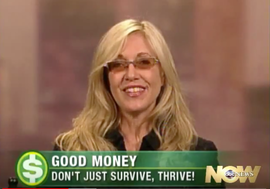 About Natalie Pace Natalie Wynne Pace is an Advocate for Sustainability, Financial Literacy & Women's Empowerment. She has been ranked as a No. 1 stock picker, above over 835 A-list pundits, by an independent tracking agency (TipsTraders). The ABCs of Money remained at or near the #1 Investing Basics e-book on Amazon for over 3 years (in its vertical), with over 120,000 downloads and a mean 5-star ranking. The 4th edition of The ABCs of Money was released on October 17, 2020. Natalie Pace's easy as a pie chart nest egg strategies earned gains in the last two recessions and have outperformed the bull markets in between. That is why her Investor Educational Retreats, books and private coaching are enthusiastically recommended by Nobel Prize winning economist Gary S. Becker, TD AMERITRADE chairman Joe Moglia, Kay Koplovitz and many Main Street investors who have transformed their lives using her Thrive Budget and investing strategies. Click to view a video testimonial from Nilo Bolden. Since publishing my Spring Rally? blog on March 5, 2021, the Dow Jones Industrial Average has climbed to new highs. Bitcoin has soared 22%, to a new peak of $61,788.45 and a market capitalization of $1.1 trillion. The NASDAQ Composite Index has regained some lost ground, but is still 6.0% below its February 12, 2021 highs. Why is the NASDAQ so weak, particularly when artificial intelligence, electric vehicles, technology, biotechnology, cannabis and Zoom Video saw such strong demand and revenue growth during the pandemic? Why are the blue chips up, when so many suffered and took on more debt and are by many measures overleveraged and overpriced? Will the $1400 stimulus check make stocks soar even higher? Can anything stop Bitcoin’s winning streak? Let’s take a closer look at what is fueling the rise and fall of each index. Vaccine Optimism The U.S. economy is predicted to have a recovery in 2021 of about 3.1% (compared to 8.2% growth in China). The possibility of returning to a post-pandemic style of normal has everyone excited. We’re all hearing about instant Investor Millionaires, and who doesn’t want to join that party? However, all industries are not equal. Some simply imploded last year, and could take time to recover. Commercial real estate, retail, travel and hospitality are highly leveraged, with weak revenue and profit margins, and asset values that are being reappraised at sharp discounts (or at risk of such). Many have already been forced to restructure, or are on the precipice of doing so. Concerns about the massive amount of debt are certainly fueling a flight to Bitcoin as a perceived “safe haven.” The Stimulus Check The stimulus check is likely to fuel even more interest in Bitcoin and the meme stocks, like Gamestop, AMC, Blackberry, Bed, Bath & Beyond, and other companies that have become popular with Millennials and on Gen Z bulletin boards. Many of these companies were close to insolvency before the Robinhood tribe decided to use their “diamond hands” to short-squeeze the billionaire hedge funds. Although crypto enthusiasts are being sold into cryptocurrencies as a way to protect themselves from a devaluation in the dollar, currently crypto is a trading platform, not a currency. Having such wild swings in valuation means that no one can really use the coins for buying and selling. There have also been many crypto criminals. The most recent prosecution was of John McAfee. However, there have been many scamsters convicted and/or sanctioned by the SEC in this space, including Ripple Labs XRP. According to the SEC complaint, “Larsen—Ripple’s initial chief executive officer (“CEO”) and current chairman of the Board—and Garlinghouse—Ripple’s current CEO—orchestrated these unlawful sales and personally profited by approximately $600 million from their unregistered sales of XRP.” In 2008, Christian Larsen was sued by the SEC for a similar issue of misleading investors, withholding material information and personally profiting from the fundraising. The rise and fall of Reddit trends and certain crypto coins tend to mirror a typical Pump & Dump scheme. Buyer beware! If you’re on the right side of this volatile activity, you can pocket astronomical gains in a New York Minute. However, the top might actually last only a few seconds. Limit orders, which can typically help in this scenario, might actually cut off your gains before they reach their zenith. Volatility What is causing all of the volatility? How long can the stock market and Bitcoin keep soaring? What phantoms might be waiting in the wings to spoil the party? Will the good times last or could this all end very, very badly (like the last two recessions have)? The NASDAQ Composite Index slid over the last few weeks for one simple reason: profit-taking, even though the tech and biotech-rich index led the rally in February. There were a lot of Shoot the Moon Stocks on the NASDAQ. Investors were taking profits at an all-time high from companies that were trading at interstellar valuations. Bitcoin’s previous peaks and drop-offs were caused by valuation concerns as well. In fact, a year ago, Bitcoin’s price was just $4,432.30, having dropped by half from $9,610 on February 20, 2020, in tandem with the 35% drop in the Dow. Inflation and Bond Yields Sophisticated investors seeking returns have created volatility in the Repo Markets (an ongoing theme since before the pandemic). Main Street investors get spooked on stocks (particularly non-dividend paying tech stocks) when they hear that rising yields in the bond market might stir up inflation and offer them a better return on their investment. It is very likely that the sell-off in the NASDAQ, rather than the dividend-paying Dow, had to do with rising yields, in addition to overvaluation concerns. One problem with Dow stocks and bonds, which is not in the mainstream media at this time, is that the higher the yield (or dividend), the higher the risk. If your capital is at risk of losing a lot of value, it’s just not worth it to get paid a tiny dividend. Just ask any General Electric investor. Over half of the S&P500 is at or near junk bond status, including a lot of banks and financial services companies.  Bonds are losing money and are illiquid. (Click to read a blog on this important trend.) Warren Buffett warned about bonds in his 2021 annual letter, writing, “Bonds are not the place to be these days. Fixed-income investors worldwide – whether pension funds, insurance companies or retirees – face a bleak future.” We’re already seeing signs of that weakness. The COVID Relief bill gave an $86 billion bailout to multiemployer pensions that were in critical or declining status. Don’t Fight the Tide The institutional money is seeking a return on investment in a world where traditionally safe investments, such as bonds, are losing money. This is pushing equities to an all-time high. That’s great in the near-term for investors. However, whenever this happens, it tends to end poorly. It’s why there was a 35% plunge in equities from February 19, 2020 to March 23, 2020 – the fastest that a bull market had ever become a bear. That’s why there is such a staunch aphorism, “Don’t reach for yield.” The young money just wants to get rich quick. They’re banding together to push their favorite stocks to the moon. If you can figure out when those stocks are in favor, then you can get on a free ride. However, it’s important to acknowledge how fast the comet fizzles out and crash lands back to earth. Being on the right side of the trade requires driving the investment 24/7, and understanding a new audio/visual and metaphoric vernacular. Don’t Fight the Fed The Federal Reserve Board and U.S. Treasury will do everything in their power to keep asset prices as high as they can for as long as they can, in a new Price Rule policy. However, many assets are overleveraged, unaffordable and overpriced by many measures. As we saw with Kushner’s Times Square building, which is entering foreclosure, the correction can be swift and severe. (Click to access that blog.) So, in addition to having equity exposure to a market rise, you also want to make sure you have enough safe that won’t get wiped out in a downturn. You need to know what is safe in a world where bonds are losing money. Don’t Ignore the Storm Clouds on the Horizon This remains one of the most challenging economies of our lives, as you can see from the Asset Bubble chart above. The U.S. has a negative outlook on the AAA credit rating from Fitch Ratings. If there is a downgrade, there is unlikely to be forewarning. A downgrade would be negative for both stocks and bonds. Congress faces a Debt Ceiling on July 31, 2021. With a Blue House & Senate, the debt ceiling should get raised. However, you can expect more headlines than normal about the amount of money that has been printed up and the decades it will take to pay this crisis off. (Incidentally, you can see in the Asset Bubble chart above that asset valuations and debt were a severe problem before the pandemic.) One of the things that Fitch will be looking for during July of this year is the political will to put the U.S. back on track for lower unemployment, sustainable economic growth, while at the same time employing the husbandry needed to stop borrowing from tomorrow to pay off yesterday. If they don’t get what they need, the U.S. is at high risk of that downgrade. (This will be a difficult terrain to traverse.) Bottom Line Parties are fun. Bubbles taste as delicious as champagne. The fun can last longer than you might believe. However, the hangover can be devastating and enduring. We don’t want to party like it’s 1999. (The NASDAQ Composite Index dropped 78% between March of 2000 and October of 2002, and took 15 years to recover.) And we don’t want to miss the party either. So, how can you have your fun and still drive home sober? That’s exactly what our Nest Egg Pie Chart strategies were designed to do. You add in hot industries – including crypto, cannabis, AI, technology, clean energy, biotechnology, etc. – underweight risk and leverage, diversify and rebalance regularly to capture gains. While that might sound like a lot of work, it’s actually far easier than riding the Wall Street rollercoaster, particularly once you learn the ABCs of Money that we all should have received in high school. And keeping your wealth, instead of being at risk of losing half, is invaluable. Why not take our Investor IQ Test to see where you score in financial literacy? Register for our April 24-26, 2021 Investor Edu Retreat by Monday, March 15, 2021 to receive the best price. Call 310-430-2397 or email [email protected] to learn more now.  Natalie Pace Financial Empowerment Retreat. April 24-26, 2021. Call 310-430-2397 or email [email protected] to learn more. Receive the best price when you register by March 15, 2021. Other Blogs of Interest Kushner's Times Square Building Plunges 80% in Value. Will There be a Spring Rally? Cannabis and the Road to Decriminalization in the U.S. Hot ETFs Return Up to 50% Since October. Investor IQ Test 2021. Investor IQ Test Answers Shoot the Moon Stock Picks 2021 Crystal Ball. Would You Pay $50 for a Cafe Latte? Is Your Tesla Stock Overpriced? Can Medmen Avoid Bankruptcy? Bitcoin is Back, Baby! Real Estate Prices are Going Up. And Down. Movie Theaters are in Trouble Airbnb Should Have a Spectacular IPO Today. Cannabis is Decriminalized. Stocks Triple. Airbnb's IPO. Should Hosts Invest? Gifts Under $5 and Free. Thanksgiving in a Pandemic. The Sustainability Silver Lining. Secretary Mnuchin Halts Bailouts Money Stress Killed My Friend Real Estate and Housing 2021. Challenges & Opportunities Real Estate in a Pandemic. Interview with Mike Fratantoni, the Chief Economist of the Mortgage Bankers Association. Bonds are Illiquid & Negative-Yielding. Annual Rebalancing is a Buy Low, Sell High Plan on Auto-Pilot. 5 Red Flags of a Financial Implosion Will Regeneron Be Approved Before the Election? Tesla Will Have an Outstanding Earnings Report Should You Wait Until After the Election to Fix Your Wealth Plan? The October Surprise Is Your Bank a Junk Bond Do Stocks Fare Better Under Democrats or Republicans? Put Your Money Where Your Heart Is. Crystal Ball for the Remainder of 2020 (Including the Election). Microcap Gaming Company Doubles 2Q 2020 Revenue. Apple & Tesla Stock Splits. Schwab's Chief Fixed Income Strategist on What's Safe. China's Tesla (Nio). 2Q Sales Soar. Why Are You Still Renting? (Errr. There is More Than This to Consider!) MedMen's Turnaround Plan Attracts A-List Board Members. Wealth Myths That Keep You Poor. Prosperity Truths That Make You Rich. Protecting Your Wealth and Home in a Recession. Technology and Silver are Golden. The Economy Contracts 32.9% in the 2nd Quarter of 2020. Real Estate: Feeling Equity Rich? Make Sure That Feeling Isn't Fleeting. Airline Revenue Plunges 86%. 10 Questions for College Success Bank Earnings Season. Crimes. Cronyism. Speculation. Real Estate Solutions for a Post-Pandemic World. Copper and Chile Update. Gold Soars. Some Gold Funds Tank. Will the Facebook Ad Boycott De-FANG Stocks? Why Did My Cannabis Stock Go Down? Which Countries Are Hot in a Global Pandemic? Is Your Financial Advisor Good at Navigating Stormy Seas? $10 Avocados, Lies, Damn Lies, Statistics & Wall Street Secrets. It's Never a Crash. Work From Home and Intergenerational Housing. Biotech Races for a Coronavirus Cure. Are You Worried About Money? May is a Good Time for Rebalancing. Is FDIC-Insured Cash at Risk of a Bank Bail-in Plan? Why Did my Bonds Lose Money? Cannabis Update. Recession Proof Your Life. Free Videocon Monday, May 10, 2020. The Recession will be Announced on July 30, 2020. Apple Reports Terrible Earnings. We Are in a Recession. Unemployment, Rising Stocks. What's Going On? 8 Money Myths, Money Pits, Scams and Conspiracy Theories. 21st Century Solutions for Protecting Your Home, Nest Egg & Job. Wall Street Insiders are Selling Like There is No Tomorrow. Why Are My Bonds Losing Money? Tomorrow is Going to be Another Tough Day. Price Matters. Stock Prices are Still Too High. Should You Ride Things Out? 7 Recession Indicators Corona Virus Update. The Bank Bail-in Plan on Your Dime. NASDAQ is Up 6X. CoronaVirus: Which Companies and Countries Will be Most Impacted. Is Tesla Worth GM and Ford Combined. Artificial Intelligence is on Fire. Is it Time to Buy S'More? Take the Retirement Challenge. Important Disclaimers Please note: Natalie Pace does not act or operate like a broker. She reports on financial news, and is one of the most trusted sources of financial literacy, education and forensic analysis in the world. Natalie Pace educates and informs individual investors to give investors a competitive edge in their personal decision-making. Any publicly traded companies or funds mentioned by Natalie Pace are not intended to be buy or sell recommendations. ALWAYS do your research and consult an experienced, reputable financial professional before buying or selling any security, and consider your long-term goals and strategies. Investors should NOT be all in on any asset class or individual stocks. Your retirement plan should reflect a diversified strategy, which has been designed with the assistance of a financial professional who is familiar with your goals, risk tolerance, tax needs and more. The "trading" portion of your portfolio should be a very small part of your investment strategy, and the amount of money you invest into individual companies should never be greater than your experience, wisdom, knowledge and patience. Information has been obtained from sources believed to be reliable. However, NataliePace.com does not warrant its completeness or accuracy. Opinions constitute our judgment as of the date of this publication and are subject to change without notice. This material is not intended as an offer or solicitation for the purchase or sale of any financial instrument. Securities, financial instruments or strategies mentioned herein may not be suitable for all investors. 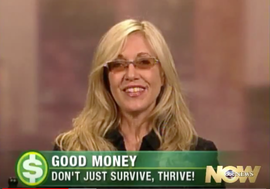 About Natalie Pace Natalie Wynne Pace is an Advocate for Sustainability, Financial Literacy & Women's Empowerment. She has been ranked as a No. 1 stock picker, above over 835 A-list pundits, by an independent tracking agency (TipsTraders). The ABCs of Money remained at or near the #1 Investing Basics e-book on Amazon for over 3 years (in its vertical), with over 120,000 downloads and a mean 5-star ranking. The 4th edition of The ABCs of Money was released on October 17, 2020. Natalie Pace's easy as a pie chart nest egg strategies earned gains in the last two recessions and have outperformed the bull markets in between. That is why her Investor Educational Retreats, books and private coaching are enthusiastically recommended by Nobel Prize winning economist Gary S. Becker, TD AMERITRADE chairman Joe Moglia, Kay Koplovitz and many Main Street investors who have transformed their lives using her Thrive Budget and investing strategies. Click to view a video testimonial from Nilo Bolden. Is New York as dead as they say? Will Manhattan come back? It’s Monday morning at 7:30 AM on February 22, 2021. The streets of Manhattan are dead. There is no hustle and bustle to make it into the office – no New York Minute. Homeless people sit on cardboard with a cup of change, or sleep in alcoves. In 2019, the brogues and ties in Manhattan migration were as predictable during Rush Hour as herds on the Serengeti following the water. A jogger passes, and then a young couple who look to be headed to coffee, not work. According to Unacast and Reuters, about 3.57 million people left New York City in 2020, while “3.5 million people earning lower average incomes moved into the city during that same period.” All told, there is a net loss of just 70,000 denizens in the five boroughs. Higher-end neighborhoods in Manhattan are seeing more vacancies and weakening rents – much more so than the other four boroughs. Even with the pullback in home values of about 5%, the average home costs over a million in Manhattan. Rents are equally unaffordable. Commercial real estate, however, is plunging. Kushner’s Times Square Building Enters Foreclosure Jared Kushner’s Time Square building is entering the foreclosure process. According to Bloomberg, 229 West 43rd Street was valued at $470 million in 2016. The building was reappraised in 2020 at just $92.5 million – a dive of -80%. There are at least $370 million in loans and mezzanine debt on the building. The asset value is a mere 25% of the debt. Earlier today, as I gazed out from my 8th floor sublet in the Murray Hill area of Manhattan, the buildings across the street looked abandoned. Day and night over 85% of the windows are dark and empty. The building I’m in has never had another person waiting for the elevator, and I’ve been here three weeks now. The same held true for the Kips Bay sublet I had from November through mid-February, 2021. I continue walking up Sixth Avenue for signs of life. There are a few essential workers scampering through the brisk air toward retail shops that won’t be open for a few hours. During my daily walks (for health and exercise) on Fifth Avenue, the iconic storefronts of yesteryear present little of their former luster. Jewelry shops have nothing on display, except barriers to entry. While Saks Fifth Avenue went all out with their festive winter holiday display – stunning to behold – many of their storefront windows today look like they belong at a discount retailer. The interior is a ghost town. The streets of Manhattan were even more deserted last night (Sunday) at 9 PM when I walked from Chelsea back to midtown. During the entire 35-minute trek, I encountered less than a dozen people. The streets were eerily empty. With the legendary Flatiron Building looming large, pointing to the illustrious Fifth Avenue and a dark Broadway, it felt as though I had stepped into an alternate universe. Surely, I must be dreaming. How else could I walk Manhattan’s bustling streets all alone? The Bank of China building is lit up, but there is no one inside. Bryant Park’s Winter Wonderland – ice rink and adorable kiosks – has no frolickers. The SalesForce Tower at 3 Bryant Park has only three offices lit up, with no one inside. This is to be expected. Salesforce’s President Brent Snyder announced on February 9, 2021 that ”the 9-to-5 workday is dead.” According to Snyder, most of their staff will work remotely or “flex,” coming into the office only 1-3 days/week for “team collaboration, customer meetings and presentations.” This “work-from-anywhere model” means that Salesforce will be able to reduce its real estate footprint, according to the Wall Street Journal. The Bank of America tower next to the SalesForce building looks even more abandoned. One floor is full of junk. The News Corporation building on 47th and 6th Ave., where Fox News used to boastfully broadcast with open windows, is completely covered up, so spectators cannot peak inside. The skyscraper above the studio has very few office lights on. Will the Vaccine Breathe Life Back into Manhattan? There are a few fundamental problems with trying to get things back to where they were in Manhattan. How many of us will feel safe enough to return to the office? How long will it take for the vaccine to bring a pre-pandemic normalcy back to the crowded subways and elevators? Will we ever squeeze in at rush hour again? If you want to get to the 70th floor of the building you have to take an elevator. Elevator capacity is extremely limited due to social distancing. The queue just to get to the office could add an extra hour to the commute. On both ends. Who’s going to do that? And then, once you get up to whatever floor your office is on, and all of the adjustments have been made for social distancing on the interior, how can the company justify the cash burn? At a time when everybody needs to shore up and batten down the hatches to weather the economic storms of this pandemic, is it feasible to pay prime dollar for a space with 1/3 of the usefulness? The reappraisal of Kushner’s Times Square building eviscerated the Loan to Value. This is a huge concern for banks with exposure to Manhattan commercial real estate. The income of Kushner’s building didn’t come close to paying even the interest-only portion of the liabilities. According to Bloomberg that was already the case in 2019 – before the pandemic. The plunge in Manhattan commercial real estate has been true of luxury homes as well. 12 East 69th Street, a mansion known for its saltwater pool, theater and Versailles-inspired dining room, listed at $114 million in 2013. The price of this exclusive Central Park dwelling was slashed to $79 million in March of 2020, and has finally found a buyer for $60 million this month (source: Business Insider). Most Manhattan homes are staying on the market for about six months. 12 East 69th Street was on and off the market for eight years. Banks with Exposure to Manhattan Have a Negative Outlook According to the CEO of New York Community Bancorp Thomas Casgemi, a majority of the Manhattan real estate loans are paying interest-only at this time. He’s hopeful that the easing of restrictions will bring everything back to normal. The loan-to-value on the Manhattan portfolio seems strong, at 54-56%, according to Casgemi. Casgemi assured the analysts on the January 27, 2021 earnings call that he has sponsors lined up to buy the assets, should the current owners fail to meet their obligations. However, the process of getting back the property and re-pricing it for a post-pandemic reality is not something that happens overnight. If the Kushner Times Square building is a trend, then the loan to value on Manhattan commercial real estate is already upside down. In our highly leveraged world, that is quite easy to imagine. How much work will actually be conducted in these giant office buildings going forward? Can clothing and lifestyle brands afford a storefront window after the Retail Apocalypse? It’s hard to imagine sophisticated sponsors scooping up Manhattan commercial real estate without the existing debt and valuation taking quite a haircut, something that will negatively impact the local banks. Bottom Line As we head into the Stimulus Bill and Spring Rally, it’s possible that a gleeful stock market might carry up commercial real estate and the financial services industry alongside the high-growth, low-debt industries (albeit at a slower pace). NY Commercial Bancorp has rallied to $12/share, after plunging to $7.72 in March of last year. However, the astute, enlightened investor will understand that there are structural shifts and troubling trends in these distressed industries. Overvalued, highly leveraged retail and office space, such as Kushner’s Times Square building, will be the most vulnerable, as will the banks and brokerages that underwrite the debt. Seeing just how far and fast the knife can drop on real estate valuations should offer a warning for homeowners as well. Even if you feel Equity Rich, it’s a good idea to do the math on your housing budget and home value to be sure that you can withstand the economic storms on the horizon. This remains one of the most challenging economic times of our lifetime. A properly diversified and protected plan protects your wealth from downturns, and allows you to build wealth in the bull markets. You lean into areas of strength and hot industries, so that when rallies occur, your wealth grows at twice the speed. You rebalance regularly, so that you keep your gains instead of watching them evanesce in the next downturn. This is a buy low, sell high plan on auto-pilot for your nest egg, which is the soundest strategy in the late stage of a secular, overpriced bull market, in the middle of the most challenging economy of our lifetime. This is something we teach at my Financial Empowerment Retreat. The next one is April 24-26, 2021. It’s online so you can join us from anywhere. Get the best price when you register by March 15, 2021. Receive additional information and testimonials by linking to the flyer. Click on the banner ad below.  Natalie Pace Financial Empowerment Retreat. April 24-26, 2021. Call 310-430-2397 or email [email protected] to learn more. Receive the best price when you register by March 15, 2021. Other Blogs of Interest Will There be a Spring Rally? Cannabis and the Road to Decriminalization in the U.S. Hot ETFs Return Up to 50% Since October. Investor IQ Test 2021. Investor IQ Test Answers Shoot the Moon Stock Picks 2021 Crystal Ball. Would You Pay $50 for a Cafe Latte? Is Your Tesla Stock Overpriced? Can Medmen Avoid Bankruptcy? Bitcoin is Back, Baby! Real Estate Prices are Going Up. And Down. Movie Theaters are in Trouble Airbnb Should Have a Spectacular IPO Today. Cannabis is Decriminalized. Stocks Triple. Airbnb's IPO. Should Hosts Invest? Gifts Under $5 and Free. Thanksgiving in a Pandemic. The Sustainability Silver Lining. Secretary Mnuchin Halts Bailouts Money Stress Killed My Friend Real Estate and Housing 2021. Challenges & Opportunities Real Estate in a Pandemic. Interview with Mike Fratantoni, the Chief Economist of the Mortgage Bankers Association. Bonds are Illiquid & Negative-Yielding. Annual Rebalancing is a Buy Low, Sell High Plan on Auto-Pilot. 5 Red Flags of a Financial Implosion Will Regeneron Be Approved Before the Election? Tesla Will Have an Outstanding Earnings Report Should You Wait Until After the Election to Fix Your Wealth Plan? The October Surprise Is Your Bank a Junk Bond Do Stocks Fare Better Under Democrats or Republicans? Put Your Money Where Your Heart Is. Crystal Ball for the Remainder of 2020 (Including the Election). Microcap Gaming Company Doubles 2Q 2020 Revenue. Apple & Tesla Stock Splits. Schwab's Chief Fixed Income Strategist on What's Safe. China's Tesla (Nio). 2Q Sales Soar. Why Are You Still Renting? (Errr. There is More Than This to Consider!) MedMen's Turnaround Plan Attracts A-List Board Members. Wealth Myths That Keep You Poor. Prosperity Truths That Make You Rich. Protecting Your Wealth and Home in a Recession. Technology and Silver are Golden. The Economy Contracts 32.9% in the 2nd Quarter of 2020. Real Estate: Feeling Equity Rich? Make Sure That Feeling Isn't Fleeting. Airline Revenue Plunges 86%. 10 Questions for College Success Bank Earnings Season. Crimes. Cronyism. Speculation. Real Estate Solutions for a Post-Pandemic World. Copper and Chile Update. Gold Soars. Some Gold Funds Tank. Will the Facebook Ad Boycott De-FANG Stocks? Why Did My Cannabis Stock Go Down? Which Countries Are Hot in a Global Pandemic? Is Your Financial Advisor Good at Navigating Stormy Seas? $10 Avocados, Lies, Damn Lies, Statistics & Wall Street Secrets. It's Never a Crash. Work From Home and Intergenerational Housing. Biotech Races for a Coronavirus Cure. Are You Worried About Money? May is a Good Time for Rebalancing. Is FDIC-Insured Cash at Risk of a Bank Bail-in Plan? Why Did my Bonds Lose Money? Cannabis Update. Recession Proof Your Life. Free Videocon Monday, May 10, 2020. The Recession will be Announced on July 30, 2020. Apple Reports Terrible Earnings. We Are in a Recession. Unemployment, Rising Stocks. What's Going On? 8 Money Myths, Money Pits, Scams and Conspiracy Theories. 21st Century Solutions for Protecting Your Home, Nest Egg & Job. Wall Street Insiders are Selling Like There is No Tomorrow. Why Are My Bonds Losing Money? Tomorrow is Going to be Another Tough Day. Price Matters. Stock Prices are Still Too High. Should You Ride Things Out? 7 Recession Indicators Corona Virus Update. The Bank Bail-in Plan on Your Dime. NASDAQ is Up 6X. CoronaVirus: Which Companies and Countries Will be Most Impacted. Is Tesla Worth GM and Ford Combined. Artificial Intelligence is on Fire. Is it Time to Buy S'More? Take the Retirement Challenge. 2020 Investor IQ Test. Answers to the 2020 Investor IQ Test. The Cannabis Capital Crunch and Stock Meltdown. Does Your Commute Pollute More Than Planes? Are Health Care Costs Killing Your Budget? 2020 Crystal Ball. The Benefits of Living Green. Featuring H.R.H. The Prince of Wales' Twin Eco Communities. What Love, Time and Charity Have to do with our Commonwealth. Interview with MacArthur Genius Award Winner Kevin Murphy. Unicorns Yesterday. Fairy Tales Today. IPO Losses Top $100 Billion. Important Disclaimers Please note: Natalie Pace does not act or operate like a broker. She reports on financial news, and is one of the most trusted sources of financial literacy, education and forensic analysis in the world. Natalie Pace educates and informs individual investors to give investors a competitive edge in their personal decision-making. Any publicly traded companies or funds mentioned by Natalie Pace are not intended to be buy or sell recommendations. ALWAYS do your research and consult an experienced, reputable financial professional before buying or selling any security, and consider your long-term goals and strategies. Investors should NOT be all in on any asset class or individual stocks. Your retirement plan should reflect a diversified strategy, which has been designed with the assistance of a financial professional who is familiar with your goals, risk tolerance, tax needs and more. The "trading" portion of your portfolio should be a very small part of your investment strategy, and the amount of money you invest into individual companies should never be greater than your experience, wisdom, knowledge and patience. Information has been obtained from sources believed to be reliable. However, NataliePace.com does not warrant its completeness or accuracy. Opinions constitute our judgment as of the date of this publication and are subject to change without notice. This material is not intended as an offer or solicitation for the purchase or sale of any financial instrument. Securities, financial instruments or strategies mentioned herein may not be suitable for all investors. 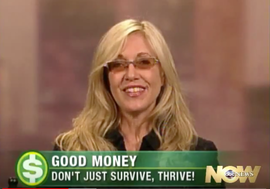 About Natalie Pace Natalie Wynne Pace is an Advocate for Sustainability, Financial Literacy & Women's Empowerment. She has been ranked as a No. 1 stock picker, above over 835 A-list pundits, by an independent tracking agency (TipsTraders). The ABCs of Money remained at or near the #1 Investing Basics e-book on Amazon for over 3 years (in its vertical), with over 120,000 downloads and a mean 5-star ranking. The 4th edition of The ABCs of Money was released on October 17, 2020. Natalie Pace's easy as a pie chart nest egg strategies earned gains in the last two recessions and have outperformed the bull markets in between. That is why her Investor Educational Retreats, books and private coaching are enthusiastically recommended by Nobel Prize winning economist Gary S. Becker, TD AMERITRADE chairman Joe Moglia, Kay Koplovitz and many Main Street investors who have transformed their lives using her Thrive Budget and investing strategies. Click to view a video testimonial from Nilo Bolden. Editorial Update: On March 17, 2021, the Federal Reserve Board increased 2021 GDP projections for the U.S. to 6.5%, from 4.2% projections in December of 2020. This is positive for the Spring Rally. However, there are a few events coming up over the summer that could burn up the Spring green, including the Debt Ceiling (July 31, 2021), Fitch's Negative Outlook on the AAA U.S. Sovereign credit rating and massive leverage in weak industries. Learn more in the Spring Rally and Stimulus Party Like It's 1999 blogs. (Click to access.) After this week’s pullback, you might be hoping for a Spring Rally. The NASDAQ Composite Index is down 6.4% since March 1, 2021. However, many of the fundamentals behind the rout of this week are going to remain a factor in all asset prices this year. In short, we have to whirl the effects of hope, hot air, handouts, the vaccine, pandemic hangover, inflation, asset bubbles and financial instability into our crystal ball, and see what materializes. As MIT professor Andrew Lo has famously said, “Physics has three laws that explain 99% of the phenomena, and economics has 99 laws that explain 3% of the phenomena.” (Lo is the author of many books on the financial markets and leads the MIT Laboratory for Financial Engineering.) Will:
Add up to a Spring Rally? Everyone is hoping that the economy will strengthen and stocks will soar. But has the good news already been priced in? How high can equities fly? What might crash land them? Below are eight things we must consider when thinking about a Spring Rally, and making projections about just when our lives will return to normal. It’s probably better to think about this as a New Normal of a Post-Pandemic World. 8 Factors that Could Prompt or Pop a Rally in Stocks Hope Hot Air Handouts The Vaccine Pandemic Hangover Inflation Asset Bubbles Financial Instability And here is a little more color on each issue. Hope People just want a happy ending. We’ve been living in a nightmarish time warp, where long, sequestered days of repetitive hibernation has us all stir-crazy. Perhaps it is always darkest before the dawn? Maybe we’ll walk outside in Spring and the sun will shine again. Our wealth will do what it usually does in the Spring Rally – increase. There’s at least one dark cloud in the sky of this Eden – the specter of last March, when the Dow Jones Industrial lost 35% before most of us knew we were in a pandemic. (The WHO declared COVID-19 was a pandemic on March 11, 2020. The low on Wall Street was March 23, 2020.) Hot Air Hope and optimism has brought in a new type of investor – one who wants to shoot the moon and become an instant millionaire. There are plenty of predators waiting in the wings to pounce on this prey. Reddit bulletin boards and Robinhood investors have been piling into troubled companies like GameStop, AMC, Bed, Bath & Beyond and Blackberry, sending their share prices soaring. Sadly, the zenith flashes and crashes typically within a few short minutes. Check out the share price trajectory of these stocks over the last month. As you can see, they look more like Pump & Dump Schemes than opportunities. Memes stocks and other marketing and promotional campaigns have wiped out newbie investors, who get gassed up on the promise of becoming rich overnight. Reading these marketing blogs can be a little intoxicating. However, a quick look at the trajectories of past meme stocks is sobering. So be cautious, particularly if you are trading on margin. Handouts The $1400/person check that the Biden Administration is close to handing out should help the economy. Prior to the pandemic, consumer spending made up 70% of GDP in the U.S., with $13.3 trillion spent. In 2020, that figure dropped by half a trillion to $12.5 trillion. The Brookings Institute predicts that it will take until 2022 for consumer spending to return to 2019 levels. For those sectors most hard hit, such as hospitality, hotels, casinos, travel and health care (non-COVID-19 related), the full recovery may not occur until 2023 or 2024, according to Brookings. Will stocks soar on increased consumer spending in 2021? Many companies already have the recovery priced in. As you can see in the average P/E chart below, which is provided by Robert Shiller, Yale professor of economics, the average price to earnings ratio is very high. In fact, the only two times in history when P/Es were higher was in 2000 and 1929. The Vaccine The COVID-19 vaccine might be distributed to all of American adults by early summer. Will that mean an opening up of the economy, a rebound in spending, travel and eating out and La Vie en Rose again? On one hand, as Federal Reserve Board Chairman Jerome Powell has been pointing out repeatedly: a return to normal is unlikely until people feel safe congregating again. I’m in Manhattan now and what I’m seeing is that there are places where people are fine mingling and other places where they are not. While this is still early in the vaccine distribution, the trends reflect some biases that stem from self-interest. Airplanes. I recently had to fly to Arizona for a memorial service. The plane was at or near 100% capacity. There was no social distancing, although everyone was required to wear a mask. Grocery stores try to limit the amount of people inside and encourage everyone to social distance. However, if someone stands too long in front of the organic tangerines, she’s going to attract a crowd around her, reaching in to grab and go. In other words, when you have to sit or stand next to someone for something essential, people are already doing it. The Office. Now that we know how easy it is to host meetings online in our yoga pants (with appropriate looking business attire on top) will we want to go back to the office? How many of us want to add a daily commute back into our lives? For New Yorkers, San Franciscans and other city dwellers, the commute might be the queue at the elevator. Elevators are one place that people are still social distancing – at least in Manhattan. This impedes a return to the office, if it’s located on the 63rd floor. The office building is still a question mark in the pandemic recovery. Do we really need two places, or can we live and work at home? Now that businesses know we can be productive from home, will reducing the office space be low-hanging fruit to make up some of the financial challenges of 2020? Has there been a structural shift in the way we work? Many technology companies say, “Yes.” Of course, there will always be businesses and services that require having a shop. Travel & Entertainment. Hotels, events, cruise ships and casinos saw their revenue drop by up to 90% in 2020. How fast will the vacationers and conventioneers return? Has there been a structural shift in how we host conferences and launch events? Will the convention business come back? Many businesses have been forced to conserve capital due to revenue losses, while taking on more debt to survive the pandemic. Hosting meetings and conventions online is a lot more cost-effective than travel, airfare, per diems and hotels. Over 19 million Americans are taking some form of unemployment (compared to 2 million a year ago). This could also put a damper on discretionary spending. Even those with a job might be more discerning and conservative about when and how they have fun, preferring to save for a rainy day. Pandemic Hangover. The vaccine should make it possible to visit foreign countries again. Cabin fever has us all ready to hop on a plane for a week in the Caribbean. However, astronomical personal debt, a fragile economy, a volatile stock market, unaffordable housing, high unemployment, and all of the budget nightmares that go along with this pandemic hangover may slap down our dreams. Just how much of a factor will excessive debt play in the recovery of countries, cities and businesses that are heavily reliant upon travel and tourism? Real estate prices are at all-time highs and stocks are near their apex. However, so is debt on every level, consumer, corporate, municipal and sovereign. Fitch Ratings has a negative outlook on the U.S. AAA credit rating. If Fitch decides to downgrade the U.S., they may do it over the summer, as Standard and Poor’s did in 2011. Inflation. The Dow Jones Industrial Average dropped 346 points on March 4, 2021 after Jerome Powell affirmed that the Federal Reserve will keep interest rates low, even if inflation starts creeping in. Powell said, “We expect that as the economy reopens and hopefully picks up, we will see inflation move up... That could create some upward pressure on prices.” Gold and silver prices tumbled in tandem with stocks on the news. Cannabis and Tesla were some of the hardest hit. Asset Bubbles. The last two recessions, pre-COVID-19, were characterized by financial instability and asset bubbles. Today, the prices are even higher, while the debt has entered the intergalactic realms. See the Asset Bubble Chart below. Should a company like Tesla that makes less than half $1 billion in net income be valued at almost $900 billion, as Tesla was in January of 2021? Investors are enthusiastic with Tesla’s growth (at 45.5% year over year) and potential. However, experience tells them that getting out over your skis too early can be deadly. Pricing today for tomorrow’s (or next decade’s) potential can be an expensive lesson. Almost every company on Wall Street was trading at half the price (or lower) on March 23, 2020 than it is today. Tesla traded at $70/share, compared to $621/share on March 4, 2021. Tesla’s share price is down 31% since the January 2021 highs. Nvidia’s share price is off 19.5%. Amazon is down 16%. Apple, a company which repurchased $24.8 billion of its stock in the last quarter of 2020, has lost 17% of its value. Even with those price corrections, the P/Es of these companies are 74, 72 and 33, respectively. The average P/E is 16-17. Overvalued Commercial Real Estate Implodes According to Bloomberg, Jared Kushner’s Times Square building was valued at $470 million in 2016. It sank to $92.5 million in 2020 and is currently in the process of foreclosure, with over $370 million in arrears. We’ve seen asset prices implode with unprecedented speed in today’s world. Financial Instability Over half of the S&P500 is at or near junk bond status. That includes a lot of banks and financial services companies. Many of these companies have exposure to the weakness in commercial real estate. Margin debt just hit an all-time high. Speculation is rampant on Wall Street. If investors get into trouble, the brokerages might as well. Financial instability increases the likelihood of a more severe and extended drop in asset prices, as occurred in the two previous recessions (Dot Com and the Great Recession). Talk on the Street We’re hearing a lot of pundits talk about the strength in stocks, the sizzling and spectacular returns of cryptocurrency, and the specter of inflation. Does that mean that technology is weak? Nope! It’s simply means that people are taking profits in what they perceive to be an overheated market. It’s hard to imagine a future without a smart phone, gaming, Whole Foods, movie streaming and ordering everything you need online. That’s why the pie chart system works better than trying to jump in and out (market timing). Will Bitcoin be the only currency when the dollar disappears? Unlikely. If someone is telling you that, beware. There are a lot of crypto-criminals and fraud in this space. Cryptocurrency is currently a trader’s delight. You can’t have a currency that is worth $20,000 one month, and drops to under $5,000 just a few months later. Yes, Bitcoin just hit $57,489 earlier this month, for some of the best returns to be had. Here again is an example of how having a slice of Bitcoin is a better strategy than going all in. Knife-Like Drops Debt, leverage, valuations and financial instability are all a concern. The pandemic recession has been characterized by knife-life corrections (such as in the Times Square building mentioned above). February 19, 2020 to March 23, 2020 was the swiftest that a bull market had ever become a bear – with losses of 35%. Yes, we’ve seen a robust recovery. However, financial instability was already a concern before the pandemic and has only become more problematic. In the words of Jerome Powell from the FOMC press conference of December 16, 2020, “The current economic downturn is the most severe of our lifetimes. It will take a while to get back to the levels of economic activity and employment that prevailed at the beginning of [2020].” Bottom Line Asset prices are inflated. The Spring Rally and vaccine are already overpriced in. Add in inflation and a move to a perceived stronger bond market (it’s not), and you’ve got a potential for a nasty surprise. Hot air is taking meme stocks to the moon, only to see them crash land in a matter of minutes. Few pundits are featuring leverage, debt and financial instability, which were the sinkholes of the two previous recessions. Most Americans are worth less today than they were worth in 1995. Your best strategy, is a diversified plan that factors in what is safe in a world full of financial instability. Market timing doesn’t work. Overweighting safe, underweighting leverage, leaning into hot industries (including technology), and reading the fine print on anything you think is safe (but probably isn’t) will afford you the grace and gains of rising above the Wall Street rollercoaster. Buy & Hope cost investors half or more of their wealth in the two previous recessions, and then they must hope and pray to recover losses in the bull markets. It took 15 years to recover from the Dot Com losses and seven and a half years to come back from the Great Recession. So, if you’re banking on a Spring Rally to keep sending stocks to the moon, and you’re not properly protected in case this March looks a lot like last year, then you are gambling. A properly diversified and protected plan protects your wealth from downturns, and allows you to build wealth in the bull markets. You lean into areas of strength and hot industries, so that when rallies occur, your wealth grows at twice the speed. You rebalance regularly, so that you keep your gains instead of watching them evanesce in the next downturn. This is a buy low, sell high plan on auto-pilot for your nest egg, which is the soundest strategy in the late stage of a secular, overpriced bull market, in the middle of the most challenging economy of our lifetime. This is something we teach at my financial empowerment retreat. The next one is April 24-26, 2021. It’s online so you can join us from anywhere.  Natalie Pace Financial Empowerment Retreat. April 24-26, 2021. Call 310-430-2397 or email [email protected] to learn more. Receive the best price when you register by March 15, 2021. Other Blogs of Interest Cannabis and the Road to Decriminalization in the U.S. Hot ETFs Return Up to 50% Since October. Investor IQ Test 2021. Investor IQ Test Answers Shoot the Moon Stock Picks 2021 Crystal Ball. Would You Pay $50 for a Cafe Latte? Is Your Tesla Stock Overpriced? Can Medmen Avoid Bankruptcy? Bitcoin is Back, Baby! Real Estate Prices are Going Up. And Down. Movie Theaters are in Trouble Airbnb Should Have a Spectacular IPO Today. Cannabis is Decriminalized. Stocks Triple. Airbnb's IPO. Should Hosts Invest? Gifts Under $5 and Free. Thanksgiving in a Pandemic. The Sustainability Silver Lining. Secretary Mnuchin Halts Bailouts Money Stress Killed My Friend Real Estate and Housing 2021. Challenges & Opportunities Real Estate in a Pandemic. Interview with Mike Fratantoni, the Chief Economist of the Mortgage Bankers Association. Bonds are Illiquid & Negative-Yielding. Annual Rebalancing is a Buy Low, Sell High Plan on Auto-Pilot. 5 Red Flags of a Financial Implosion Will Regeneron Be Approved Before the Election? Tesla Will Have an Outstanding Earnings Report Should You Wait Until After the Election to Fix Your Wealth Plan? The October Surprise Is Your Bank a Junk Bond Do Stocks Fare Better Under Democrats or Republicans? Put Your Money Where Your Heart Is. Crystal Ball for the Remainder of 2020 (Including the Election). Microcap Gaming Company Doubles 2Q 2020 Revenue. Apple & Tesla Stock Splits. Schwab's Chief Fixed Income Strategist on What's Safe. China's Tesla (Nio). 2Q Sales Soar. Why Are You Still Renting? (Errr. There is More Than This to Consider!) MedMen's Turnaround Plan Attracts A-List Board Members. Wealth Myths That Keep You Poor. Prosperity Truths That Make You Rich. Protecting Your Wealth and Home in a Recession. Technology and Silver are Golden. The Economy Contracts 32.9% in the 2nd Quarter of 2020. Real Estate: Feeling Equity Rich? Make Sure That Feeling Isn't Fleeting. Airline Revenue Plunges 86%. 10 Questions for College Success Bank Earnings Season. Crimes. Cronyism. Speculation. Real Estate Solutions for a Post-Pandemic World. Copper and Chile Update. Gold Soars. Some Gold Funds Tank. Will the Facebook Ad Boycott De-FANG Stocks? Why Did My Cannabis Stock Go Down? Which Countries Are Hot in a Global Pandemic? Is Your Financial Advisor Good at Navigating Stormy Seas? $10 Avocados, Lies, Damn Lies, Statistics & Wall Street Secrets. It's Never a Crash. Work From Home and Intergenerational Housing. Biotech Races for a Coronavirus Cure. Are You Worried About Money? May is a Good Time for Rebalancing. Is FDIC-Insured Cash at Risk of a Bank Bail-in Plan? Why Did my Bonds Lose Money? Cannabis Update. Recession Proof Your Life. Free Videocon Monday, May 10, 2020. The Recession will be Announced on July 30, 2020. Apple Reports Terrible Earnings. We Are in a Recession. Unemployment, Rising Stocks. What's Going On? 8 Money Myths, Money Pits, Scams and Conspiracy Theories. 21st Century Solutions for Protecting Your Home, Nest Egg & Job. Wall Street Insiders are Selling Like There is No Tomorrow. Why Are My Bonds Losing Money? Tomorrow is Going to be Another Tough Day. Price Matters. Stock Prices are Still Too High. Should You Ride Things Out? 7 Recession Indicators Corona Virus Update. The Bank Bail-in Plan on Your Dime. NASDAQ is Up 6X. CoronaVirus: Which Companies and Countries Will be Most Impacted. Is Tesla Worth GM and Ford Combined. Artificial Intelligence is on Fire. Is it Time to Buy S'More? Take the Retirement Challenge. 2020 Investor IQ Test. Answers to the 2020 Investor IQ Test. The Cannabis Capital Crunch and Stock Meltdown. Does Your Commute Pollute More Than Planes? Are Health Care Costs Killing Your Budget? 2020 Crystal Ball. The Benefits of Living Green. Featuring H.R.H. The Prince of Wales' Twin Eco Communities. What Love, Time and Charity Have to do with our Commonwealth. Interview with MacArthur Genius Award Winner Kevin Murphy. Unicorns Yesterday. Fairy Tales Today. IPO Losses Top $100 Billion. Important Disclaimers Please note: Natalie Pace does not act or operate like a broker. She reports on financial news, and is one of the most trusted sources of financial literacy, education and forensic analysis in the world. Natalie Pace educates and informs individual investors to give investors a competitive edge in their personal decision-making. Any publicly traded companies or funds mentioned by Natalie Pace are not intended to be buy or sell recommendations. ALWAYS do your research and consult an experienced, reputable financial professional before buying or selling any security, and consider your long-term goals and strategies. Investors should NOT be all in on any asset class or individual stocks. Your retirement plan should reflect a diversified strategy, which has been designed with the assistance of a financial professional who is familiar with your goals, risk tolerance, tax needs and more. The "trading" portion of your portfolio should be a very small part of your investment strategy, and the amount of money you invest into individual companies should never be greater than your experience, wisdom, knowledge and patience. Information has been obtained from sources believed to be reliable. However, NataliePace.com does not warrant its completeness or accuracy. Opinions constitute our judgment as of the date of this publication and are subject to change without notice. This material is not intended as an offer or solicitation for the purchase or sale of any financial instrument. Securities, financial instruments or strategies mentioned herein may not be suitable for all investors. 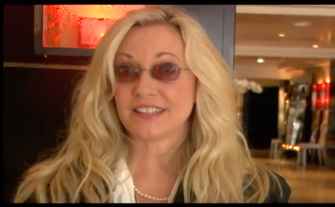 About Natalie Pace Natalie Wynne Pace is an Advocate for Sustainability, Financial Literacy & Women's Empowerment. She has been ranked as a No. 1 stock picker, above over 835 A-list pundits, by an independent tracking agency (TipsTraders). The ABCs of Money remained at or near the #1 Investing Basics e-book on Amazon for over 3 years (in its vertical), with over 120,000 downloads and a mean 5-star ranking. The 4th edition of The ABCs of Money was released on October 17, 2020. Natalie Pace's easy as a pie chart nest egg strategies earned gains in the last two recessions and have outperformed the bull markets in between. That is why her Investor Educational Retreats, books and private coaching are enthusiastically recommended by Nobel Prize winning economist Gary S. Becker, TD AMERITRADE chairman Joe Moglia, Kay Koplovitz and many Main Street investors who have transformed their lives using her Thrive Budget and investing strategies. Click to view a video testimonial from Nilo Bolden. |
AuthorNatalie Pace is the co-creator of the Earth Gratitude Project and the author of The Power of 8 Billion: It's Up to Us, The ABCs of Money, The ABCs of Money for College, The Gratitude Game and Put Your Money Where Your Heart Is. She is a repeat guest & speaker on national news shows and stages. She has been ranked the No. 1 stock picker, above over 830 A-list pundits, by an independent tracking agency, and has been saving homes and nest eggs since 1999. Archives
July 2024
Categories |







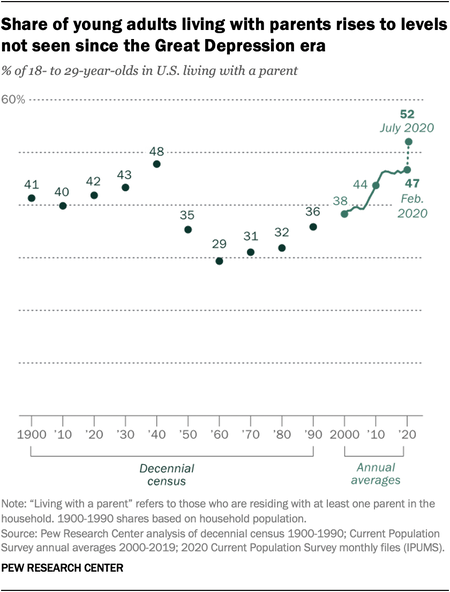
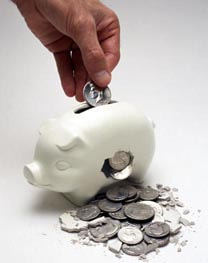
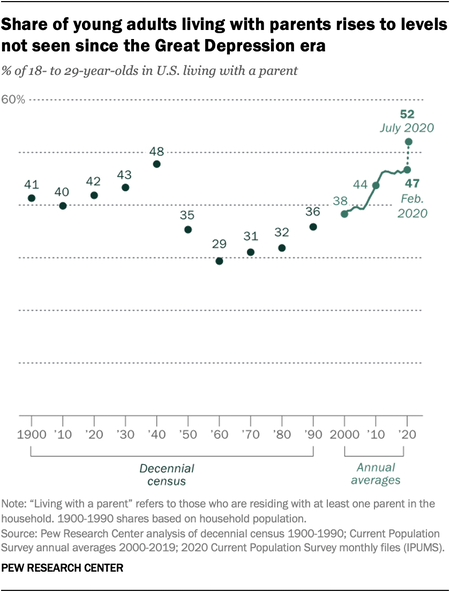

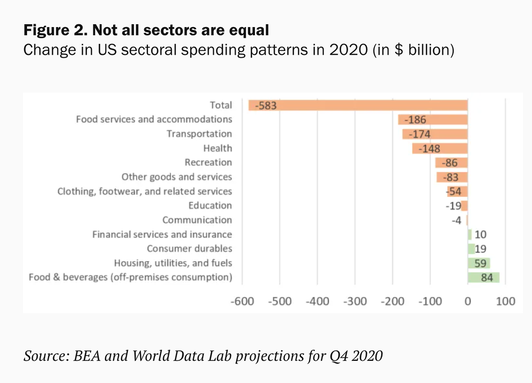
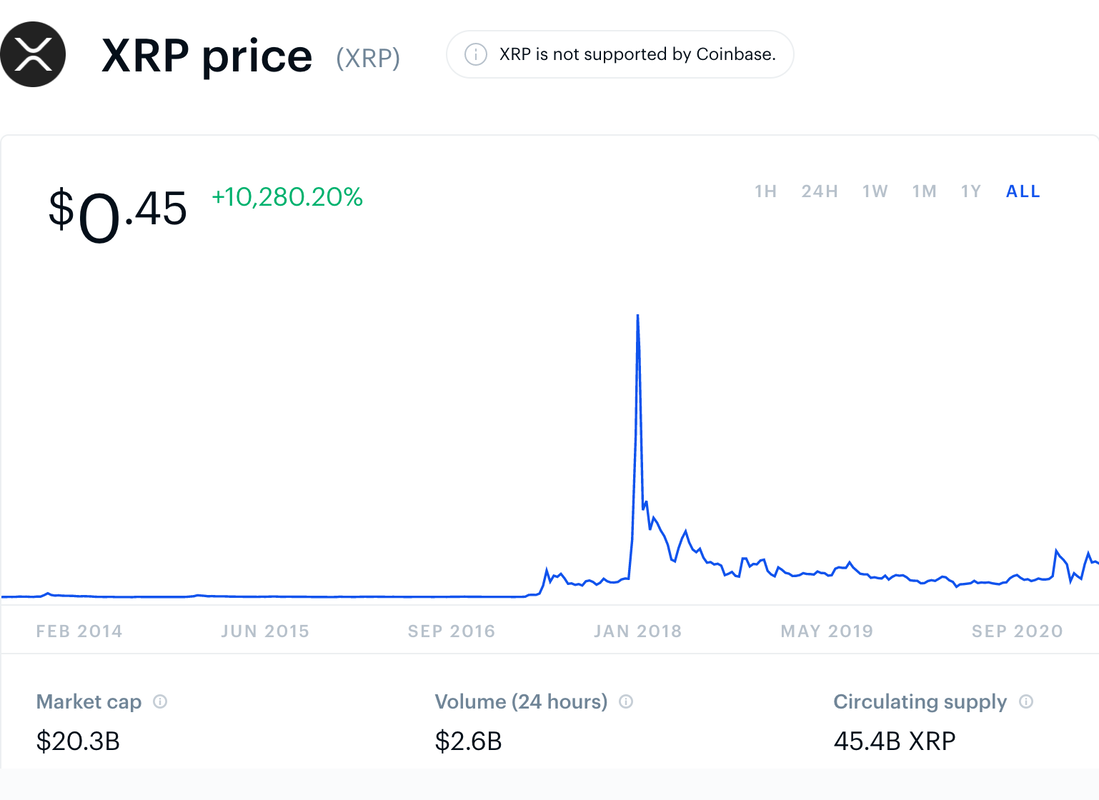
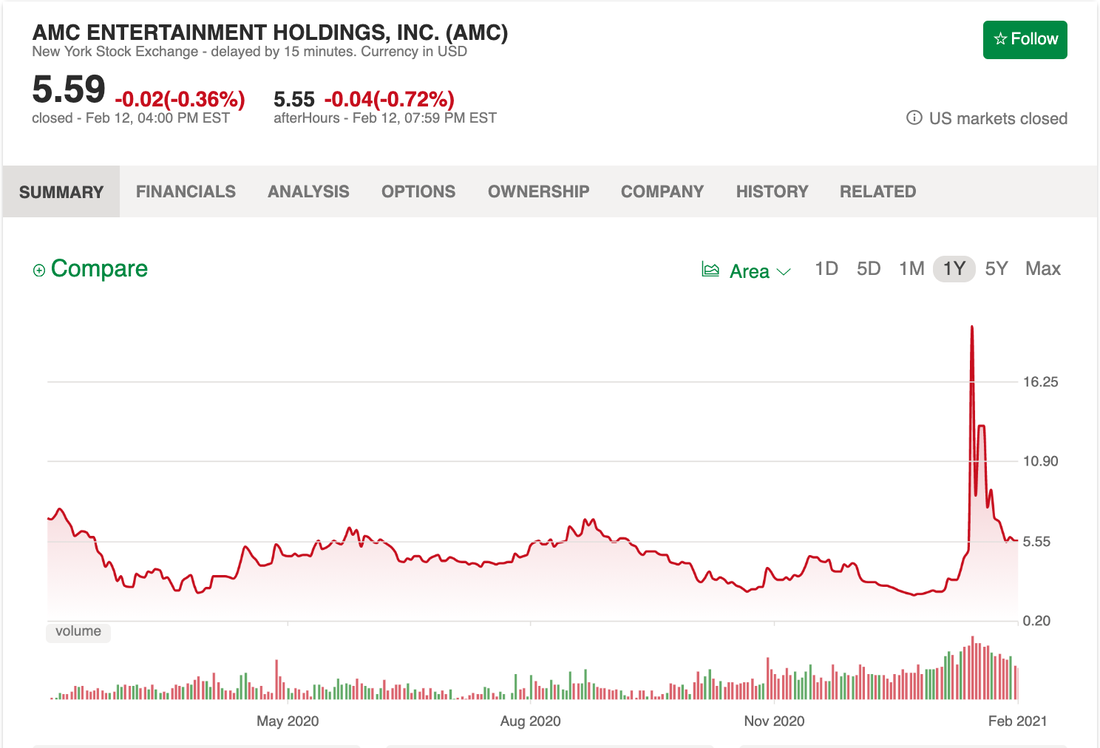
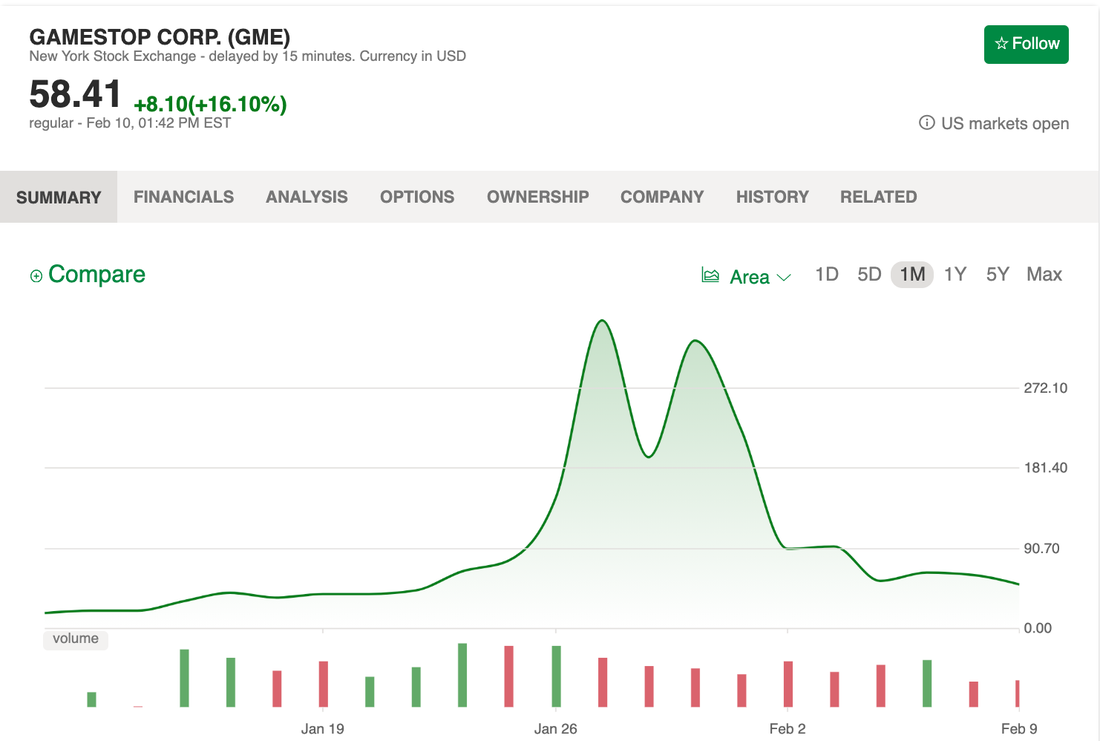
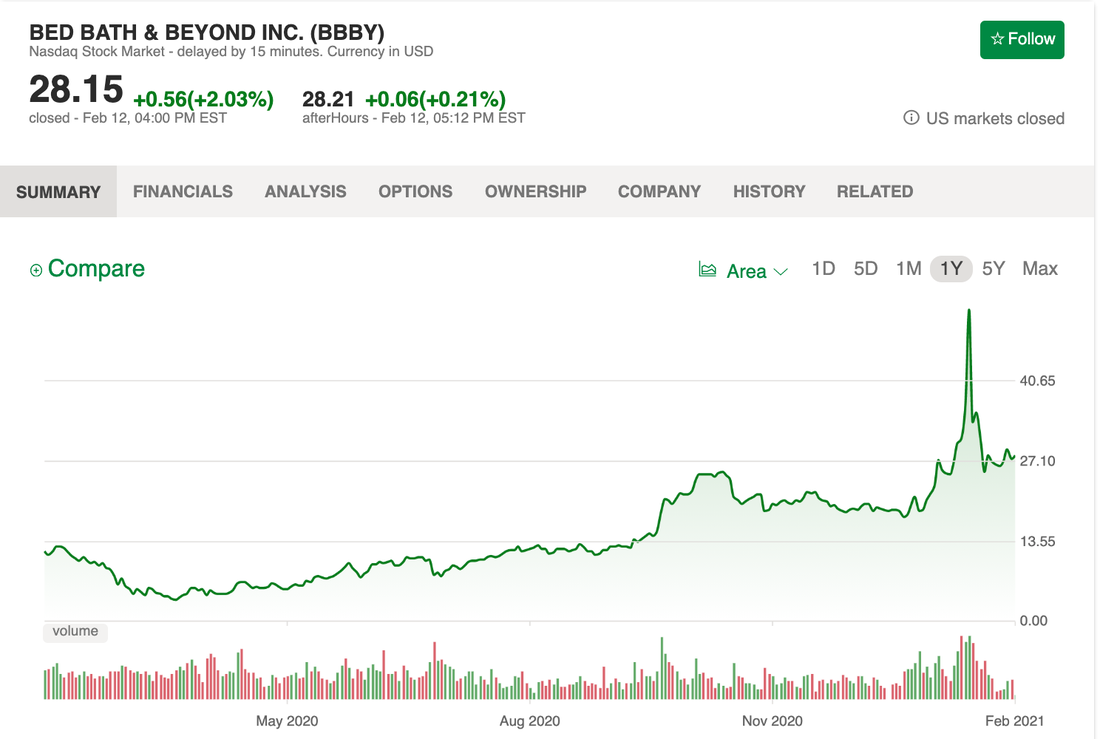
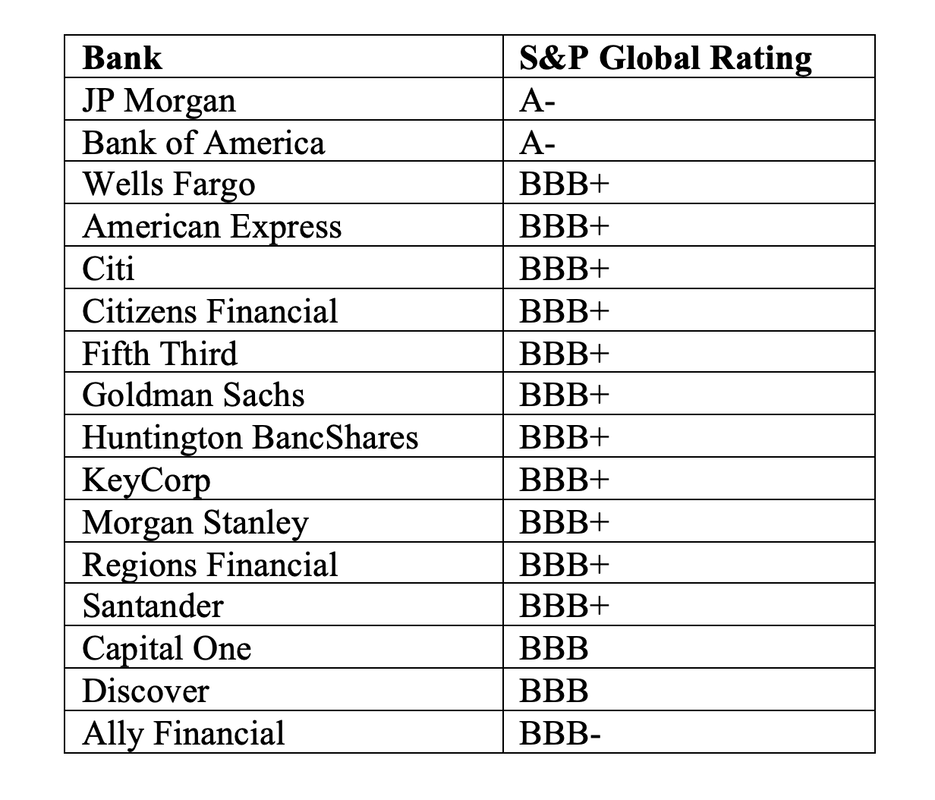
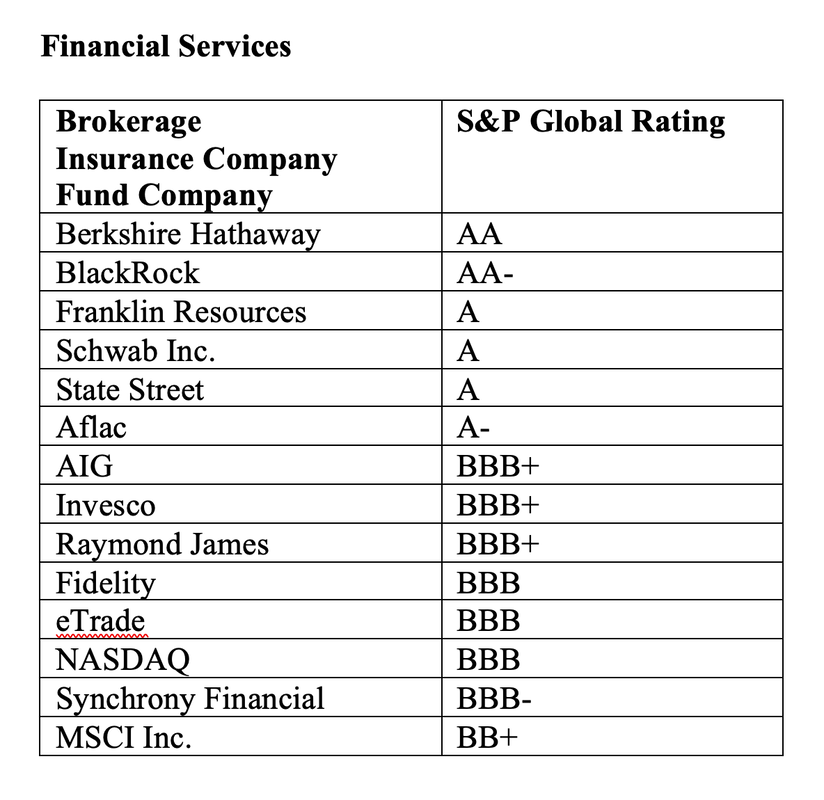
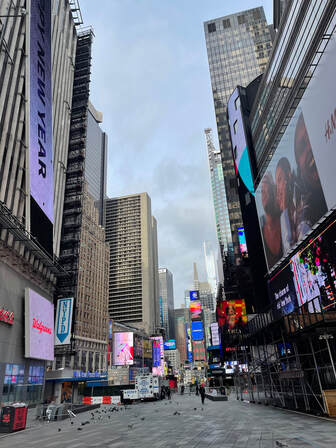

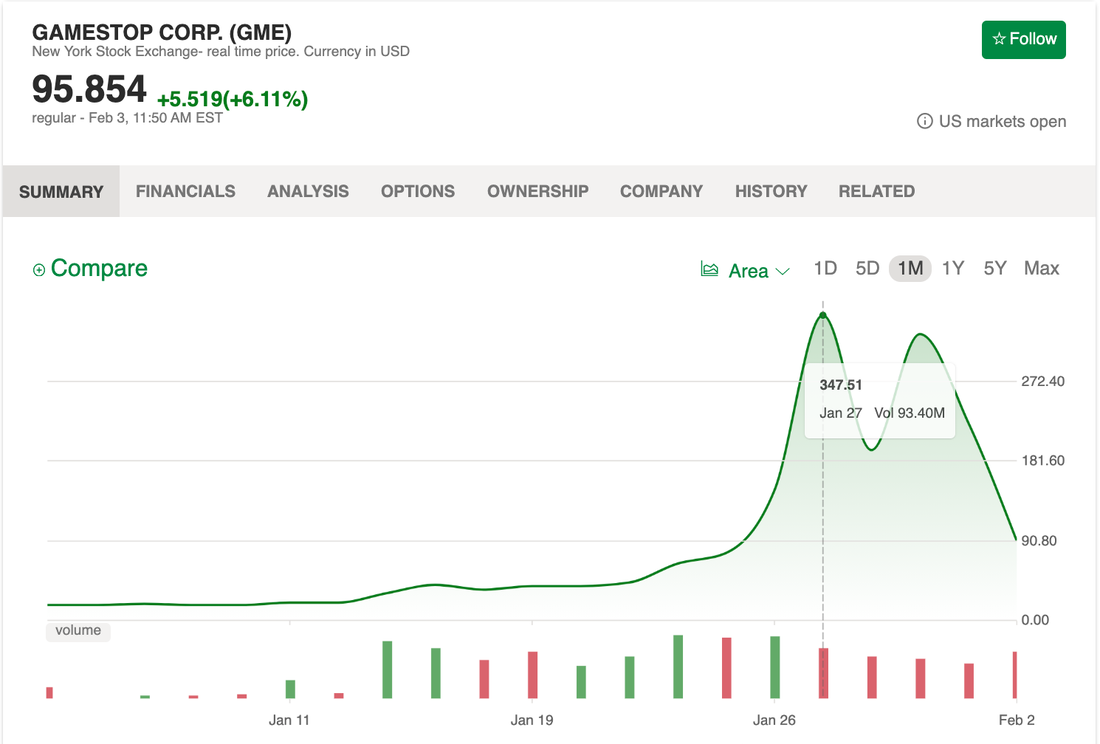
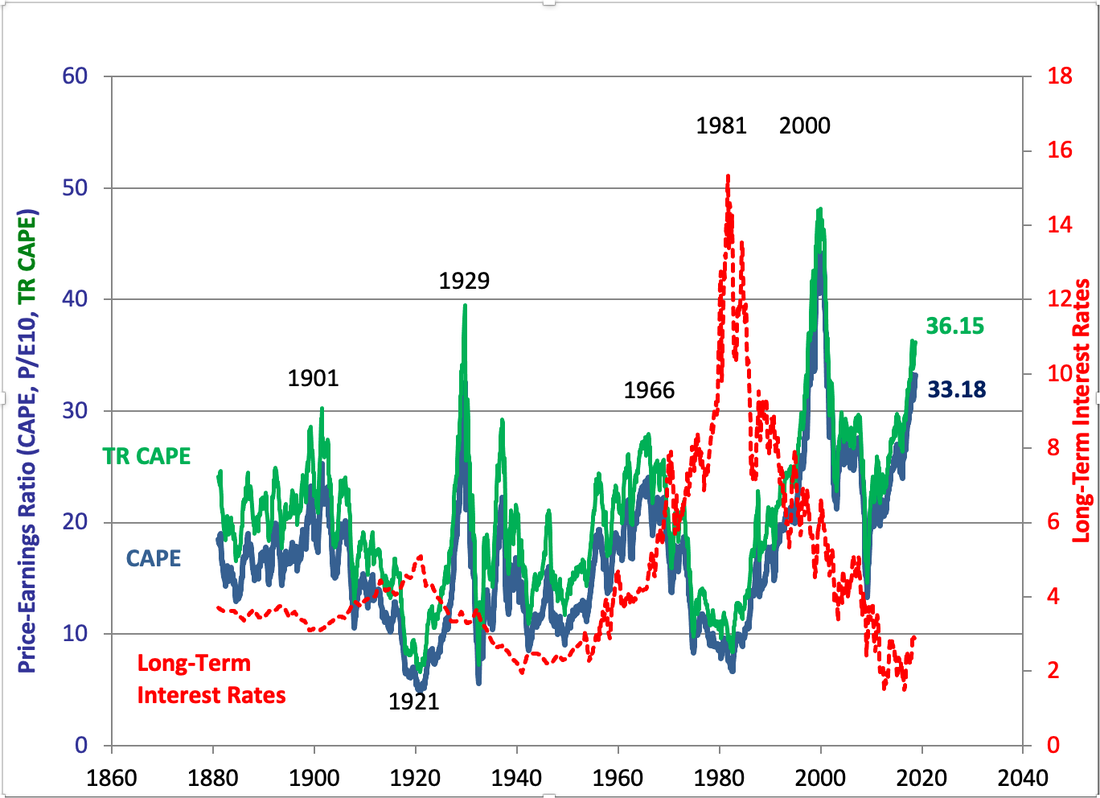
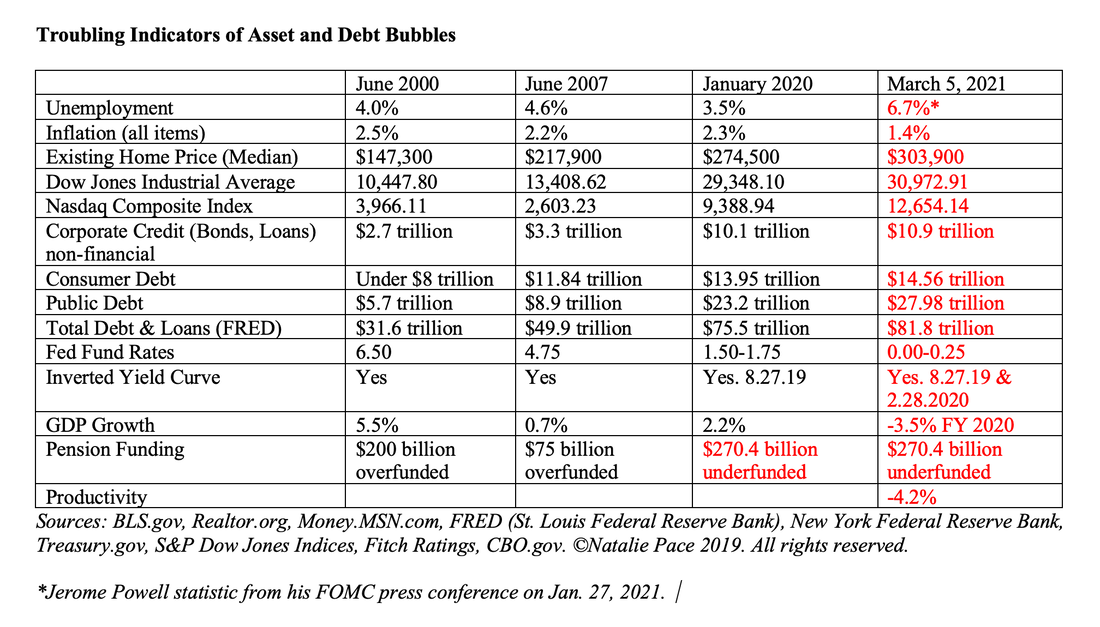
 RSS Feed
RSS Feed